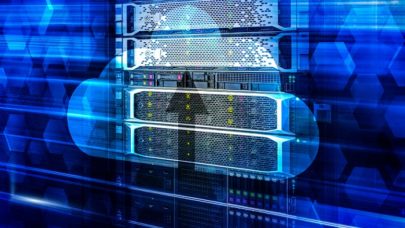Intel CEO Paul Otellini is worried. And not about the chip business. The company just racked up the best first quarter in its history, and the semiconductor industry, in general, looks like it’s poised for a rebound. No, Otellini is worried about US technological competitiveness.
In the May/June issue of Technology Review, an interview with the Intel chief exec revealed some of his angst about the direction of technological innovation in the United States. Otellini, like plenty of others in the IT industry, is seeing US leadership slip in crucial areas like science and math education, as well as in government investment in basic science and technology. On the latter subject, Otellini opines:
Governments are best positioned to fund basic research. But there’s been a decade-long erosion in the amount of that funding. It’s now on a path to grow, and eventually the goal is to double it. But it takes a long time to do that.
The 2007 COMPETES Act was designed to support this pace of investment, doubling funding for the National Science Foundation, National Institute for Standards and Technology, and the Department of Energy’s Office of Science over the next ten years. It also upped the commitments to NASA, and the National Oceanic and Atmospheric Administration, among others. Appropriations have not quite kept that pace, though (check out the chart in the latest CRA blog). Overall, though, the Fed’s commitment to this this type of basic research is better than it has been in decades.
At the same time he is bemoaning government investment, Otellini also complains the corporate tax rates are too high, not connecting the dots that it’s those same taxes that support government R&D investments. By the way, Intel’s effective tax rate for the first quarter of the year was 29 percent (on net income of $2.4 billion). If you’re a Democrat, that sounds about right; if you’re a Republican, that’s way too high; and if you’re in the Tea Party, it’s a reason to strap on a gun.
Otellini admits that multinationals like Intel are somewhat insulated from erosion in US competitiveness, noting that companies like his can recruit employees and establish offices basically anywhere they want to. On the other hand, he says:
I think that America is the best place in the world for innovation when it is done right. Historically, the infrastructure, capital markets, acceptance of failure, and the willingness to try again are uniquely American.
Right. Because in Europe and the rest of the world, they just give up after the first try. Sheesh.
Maybe his most telling observation is his take on the uneven performance of math and science students:
You can measure the gradual erosion with something as straightforward as how our kids are doing in math and science. It’s clear the best of the best coming out of our schools are world class. It is the average that I’m concerned about.
Otellini is pretty much on target here. It is a country of haves and have-nots with regards to education in general, and students in tech-related fields suffer the same fate. But the principle driver for this is not the education system, per se, but the tremendous wealth disparity in the US today. Today, the top one percent of the population owns a record 70 percent of all financial assets. That pretty much puts the US at the bottom of the wealth distribution scale for industrialized nations.
Educational quality and opportunity are directly related to income, as any parent of a college-bound child will tell you. Even most public universities in the US require an upper-middle class type income these days (unless you want to mortgage your future with student loans). Until the wealth disparity is narrowed, you can forget about bending the curve upward for math and science education.
Despite that, students seem to be returning to computer science at US colleges, reversing the sharp downward trend in CS enrollment after the dot-com bust. Right now IT looks like the can’t-miss career for the 21st century, and students are responding. According to 2008-2009 annual Computing Research Association’s Taulbee Survey: “Total enrollment by majors in computer science is up 5.5 percent over last year.” Of course, when those students graduate, they may be competing for positions with the 250,000 tech workers who lost their jobs last year. But that’s just the kind of competition Mr. Otellini likes.



























































